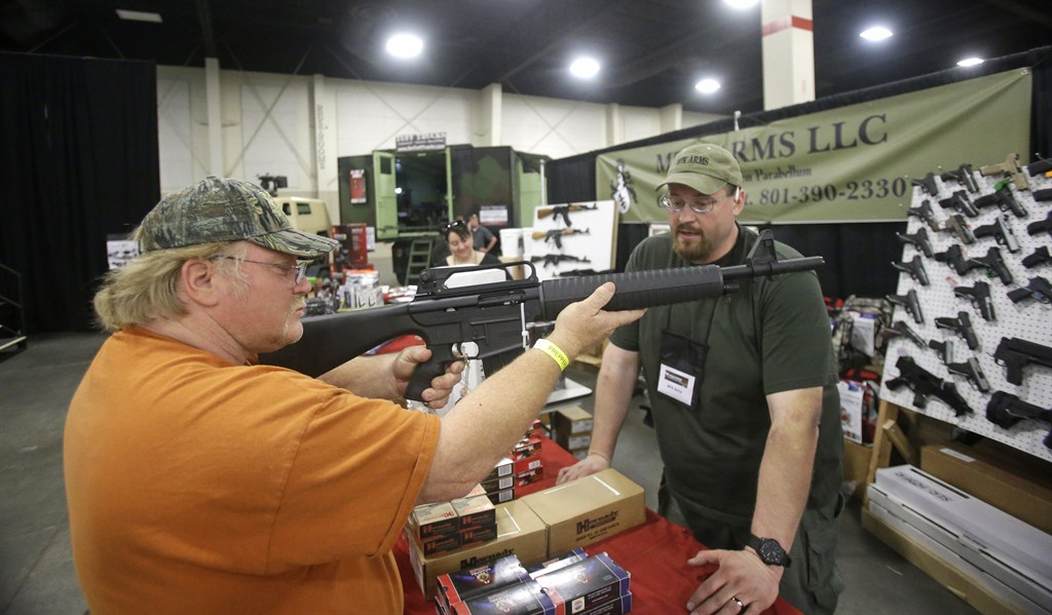"Researchers say the number of preppers has doubled in size to about 20 million since 2017," Reuters reports. That's an extraordinary increase in less than seven years. What's driving the increase is Americans' growing fear that no matter who wins the election, about half of us think that violence will be a "feature" of future elections.
Does the widespread use of apocalyptic rhetoric about the "end of democracy" or "the end of America" have anything to do with it?
Reuters, commenting on the increase in preppers, adds, "Much of that growth is from minorities and people considered left-of-center politically, whose sense of insecurity was heightened by Donald Trump's 2016 election, the pandemic, more frequent extreme weather and the 2020 racial justice protests following the murder of George Floyd."
So, yes, the hysterical rhetoric from the left has definitely contributed to people's fears. But are they unreasonable fears?
Reuters based the story on attendees at a recent "Survival & Prepper Show" in Longmont, Colorado, where a "30-year-old lesbian" mingled with "bearded white men with closely cropped hair," "hippy moms," and "Latino families." Attendees cited COVID-19, supply-chain interruptions, power outages, and other disruptions that eroded faith in authorities and pushed them to prepare for emergencies.
It's unfortunate when anybody suffers through reminders that social order can be fragile. But it's wise for people to take responsibility for their well-being. In fact, the attendees at that show are representative of a significant segment of Americans.
"In 2022, 55 percent of adults surveyed stated they had pursued three or more of the twelve preparedness actions" recommended by FEMA.
The preparedness actions are all commonsense measures to prepare for the worst. "Make a plan" is near the top of the list, along with "Practice emergency drills" and "Test family communication plan."
"Although a variety of factors may be contributing to the changes in preparedness that FEMA has recorded over time, one of the most significant factors was the COVID-19 pandemic."
It would have been better if the government hadn't unnecessarily scared the bejeebers out of us about the lethality of COVID-19. As it is, many people are waiting for the other shoe to drop and won't be caught unawares again.
"The 20 million US preppers mark has solidly been crossed," Army Col. Chris Ellis explained in 2022. Ellis wrote a seminal paper on preppers in 2021 titled "The Noah Virus: Who Is Infected With High Resiliency for Disaster?"
"If you use the broader definition of a prepper as someone who can handle at least two weeks of disruption, the number gets even higher," Ellis explained.
He uses the term "resilient citizens" to describe Americans "who can survive for 31 or more days at home without power, water, or transportation." He estimated that "14.9 million Americans had 31 days or more of at-home preparedness in 2020."
In his 2021 paper, using data from 2018, Ellis found that resilient citizens were 75.1 percent white, 6.5 percent black, 1.4 percent Asian, 1.9 percent American Indian or Alaska Native, 1.9 percent Native Hawaiian or Pacific Islander, and 5.6 percent Hispanic. Urban dwellers made up 62.8 percent of resilient citizens, with 12 percent being small town/rural in the surveyed group. "Income, education, geographical residence, and political party either were statistically insignificant or not substantive," he added.
Of course, that was before the chaos of 2020, which spurred a sense of urgency among many.
"Asians disproportionately embraced prepping in '20, which perhaps makes sense given what they may have been hearing from friends and family back in Asia during early Covid combined with some of the anti-Asian racism that grew in the US in '20," Ellis wrote in 2022 using updated data.
Prepping is booming, with revenues topping $2.46 billion last year. The questions linger, however. While it's a good idea to be prepared for natural disasters, how likely is it that political violence will lead to a shutdown in services like water, power, and transportation?
About 20 million Americans don't want to find out.










Join the conversation as a VIP Member